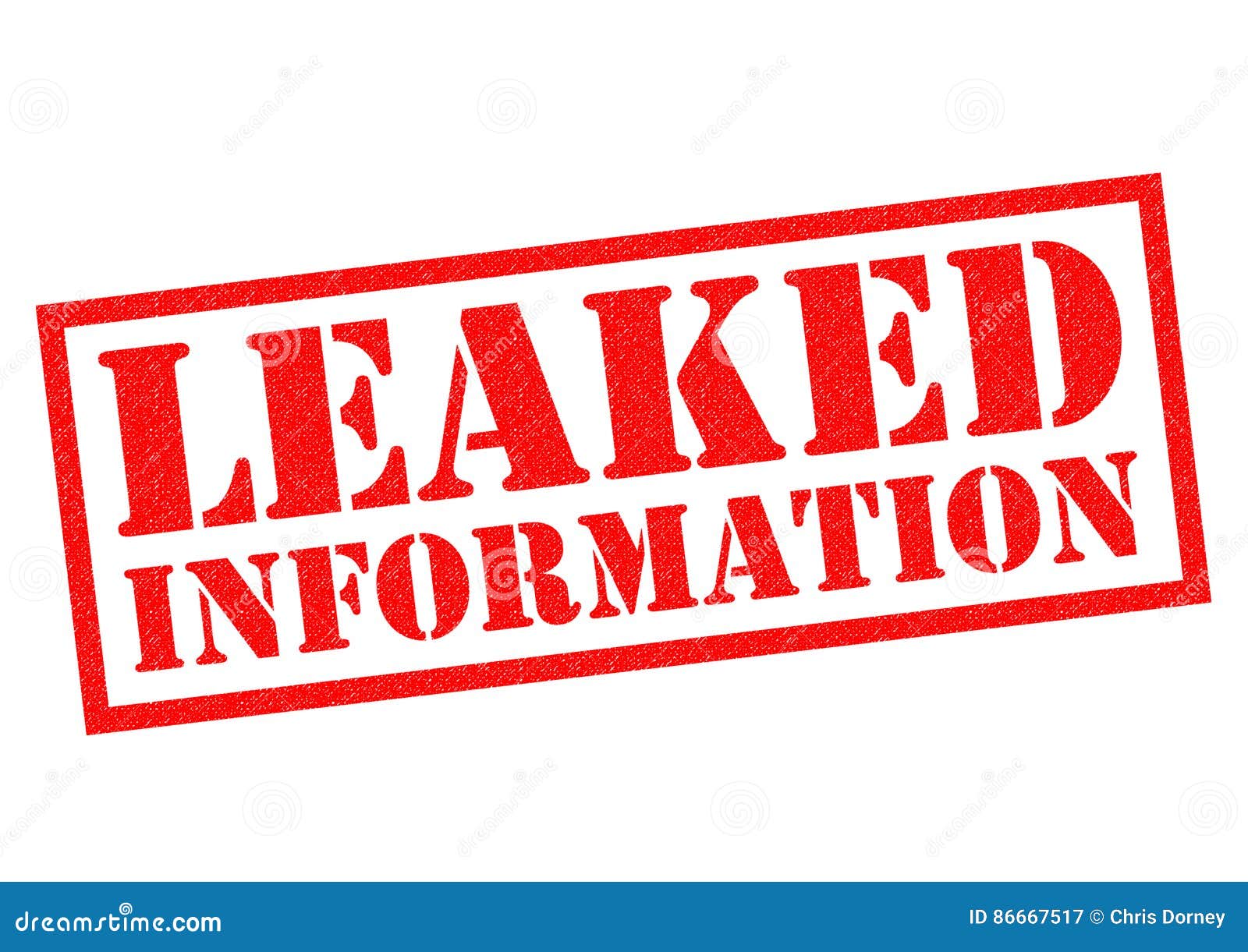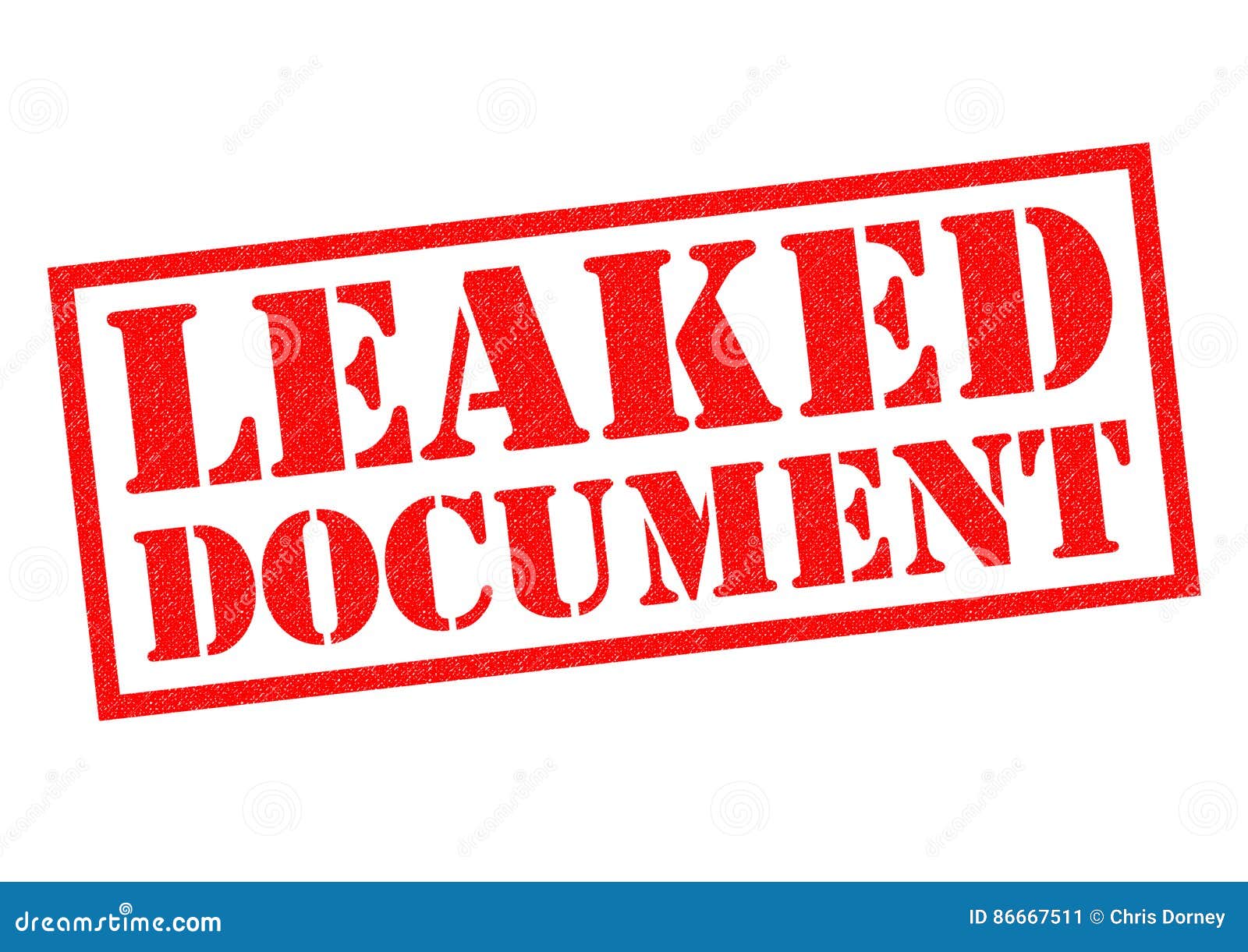So listen up, folks. We’ve all heard the buzzwords—leaked documents, whistleblower revelations, and confidential files hitting the internet. But what does it all mean? In today’s world, where information flows faster than ever, leaked documents have become a hot topic. They’re not just some random papers floating around; they can shape public opinion, expose corruption, and even change history. If you’ve ever wondered how these leaks happen or why they matter, buckle up because we’re diving deep into this rabbit hole.
Now, let’s get one thing straight—leaked documents aren’t always about conspiracy theories or cloak-and-dagger stuff. Sometimes, they’re just plain old corporate secrets or government memos that someone decided to share with the world. But other times, they’re game-changers. Think WikiLeaks, the Panama Papers, or even the Pentagon Papers. These leaks didn’t just make headlines; they shook entire systems to their core. So yeah, this isn’t just idle chatter—it’s serious business.
Here’s the deal: leaked documents are everywhere, and understanding them is crucial. Whether you’re a journalist, a concerned citizen, or just someone scrolling through social media, knowing how to interpret these leaks can help you stay informed. This article will break it all down for you—what leaked documents are, why they matter, and how you can navigate the murky waters of modern information leaks. Ready? Let’s go!
Read also:Vivienne Falcone A Remarkable Journey In The World Of Business And Entrepreneurship
What Are Leaked Documents Anyway?
Alright, let’s start with the basics. Leaked documents refer to any sensitive or confidential information that gets released without permission. It could be anything from emails, memos, financial records, or classified government files. The key here is that these documents were never meant to see the light of day—or at least not until someone decided to spill the beans. And trust me, there’s always someone willing to do just that.
Leaked documents come in all shapes and sizes. Some are small potatoes, like an employee accidentally forwarding an internal email to the wrong person. Others are massive operations involving gigabytes of data and years of investigation. But no matter the scale, the impact can be huge. A single leaked document can expose wrongdoing, spark debates, or even topple governments. Yeah, it’s that serious.
How Do Leaks Happen?
Now, you might be wondering how these leaks even happen in the first place. Well, there are a few common ways. First, you’ve got insider whistleblowers—people who have access to sensitive information and decide to share it with the world. These folks usually have a moral or ethical reason for leaking, like exposing corruption or injustice. Think Edward Snowden or Chelsea Manning. They’re not just random hackers; they’re individuals with a cause.
Then there’s the accidental leak. Yep, you read that right. Sometimes, people just mess up. Maybe a company forgets to secure its servers, or an employee sends a confidential file to the wrong email address. It happens more often than you’d think. And last but not least, there’s hacking. Cybercriminals love nothing more than breaking into systems and stealing data. Once they’ve got what they want, they either sell it on the dark web or release it publicly for maximum chaos.
Why Do Leaked Documents Matter?
Okay, so we’ve established what leaked documents are and how they happen. But why should you care? The answer is simple: leaked documents can have a profound impact on society. They can uncover hidden truths, hold powerful institutions accountable, and even inspire change. When done right, leaks can be a force for good. But—and this is a big but—they can also cause harm if misused or taken out of context.
For starters, leaked documents can expose corruption. Take the Panama Papers, for example. In 2016, a massive leak of financial records from a Panamanian law firm revealed how some of the world’s richest people were hiding their money in offshore accounts. This wasn’t just a random scandal; it led to investigations, resignations, and new laws to combat tax evasion. That’s the power of a well-executed leak.
Read also:Revolutionizing Healthcare Why Telemedicine Is The Future Of Medical Care
Leaked Documents and Accountability
Another reason leaked documents matter is that they promote accountability. When powerful organizations or individuals know that their actions can be exposed, they’re more likely to behave ethically. It’s like having a watchdog on your back all the time. And let’s face it, accountability is something we could all use more of in today’s world.
But here’s the catch: not all leaks are created equal. Some are genuine attempts to bring about positive change, while others are politically motivated or simply done for personal gain. That’s why it’s crucial to approach leaked documents with a critical eye. Just because something is leaked doesn’t automatically make it true. Always verify the source and look for corroborating evidence before jumping to conclusions.
Types of Leaked Documents
Not all leaks are the same, and understanding the different types can help you better interpret what’s being revealed. Here’s a quick breakdown:
- Corporate Leaks: These involve confidential business information, like financial reports, emails, or trade secrets. Think of the time when Tesla’s internal emails were leaked, revealing how the company handled safety concerns.
- Government Leaks: These are often the biggest and most controversial. They can include classified military documents, diplomatic cables, or surveillance records. The Snowden leaks are a prime example of this category.
- Financial Leaks: As the name suggests, these involve financial data, such as bank statements, tax records, or investment portfolios. The Paradise Papers and Panama Papers fall under this category.
- Personal Leaks: Sometimes, leaked documents aren’t about big organizations; they’re about individuals. Think of celebrity phone hacks or private messages being exposed. While these leaks can be sensational, they often raise serious privacy concerns.
Legal Implications of Leaked Documents
Let’s talk about the elephant in the room: legality. Leaked documents can raise all sorts of legal issues, depending on the nature of the leak and the jurisdiction involved. In some cases, leaking confidential information is protected under whistleblower laws, especially if it exposes wrongdoing. But in other cases, it can land you in serious trouble.
For example, in the U.S., the Espionage Act can be used to prosecute individuals who leak classified government information. This was the case with Chelsea Manning, who was sentenced to 35 years in prison for leaking sensitive military documents. On the flip side, whistleblowers like Edward Snowden have argued that their actions were justified because they exposed illegal surveillance practices. It’s a complex legal landscape, to say the least.
Protecting Yourself as a Whistleblower
If you’re thinking about blowing the whistle, there are a few things you need to know. First, make sure you have solid evidence to back up your claims. Second, consider consulting a lawyer who specializes in whistleblower cases. And finally, be prepared for the consequences. Leaking sensitive information can have serious repercussions, both legally and personally. But if done responsibly, it can also lead to positive change.
Impact of Leaked Documents on Society
Leaked documents don’t just affect the people or organizations directly involved; they can have a ripple effect on society as a whole. For one, they can shape public opinion. When people see evidence of corruption or injustice, it can fuel protests, movements, or even revolutions. Case in point: the Arab Spring, which was partly fueled by leaks exposing government corruption.
Leaked documents can also influence policy. Governments and corporations often respond to leaks by implementing new regulations or reforms. For example, after the Cambridge Analytica scandal, where millions of Facebook users’ data was leaked, the EU introduced the GDPR—a set of rules to protect personal data and privacy. So yeah, leaks can be a catalyst for change.
Challenges in Interpreting Leaked Documents
But here’s the thing: interpreting leaked documents isn’t always straightforward. Sometimes, the information is incomplete or taken out of context. Other times, it’s deliberately misleading. That’s why it’s so important to approach leaks with a healthy dose of skepticism. Always look for multiple sources and try to understand the bigger picture before forming an opinion.
High-Profile Leaked Documents in History
Let’s take a trip down memory lane and look at some of the most famous leaked documents in history. These leaks not only made headlines but also had lasting impacts on the world:
- The Pentagon Papers: In 1971, a classified study on the U.S. involvement in Vietnam was leaked to the press. It revealed that the government had knowingly misled the public about the war, leading to widespread protests and ultimately contributing to the end of the conflict.
- WikiLeaks: Founded in 2006, WikiLeaks became synonymous with leaks. From releasing diplomatic cables to exposing war crimes, the site has been both praised and criticized for its role in shaping global discourse.
- Panama Papers: As we mentioned earlier, this 2016 leak exposed a web of offshore financial dealings, implicating world leaders, celebrities, and business tycoons in tax evasion schemes.
How to Verify Leaked Documents
With so much information floating around, it’s more important than ever to verify leaked documents. Here are a few tips:
- Check the source: Is the person or organization releasing the documents credible? Do they have a track record of accuracy?
- Look for corroborating evidence: Are other sources confirming the information? If not, proceed with caution.
- Be wary of sensationalism: Some leaks are designed to grab attention rather than inform. Stick to reputable news outlets and fact-checkers.
Tools for Verification
There are several tools you can use to verify leaked documents:
- Fact-checking websites: Sites like Snopes, FactCheck.org, and PolitiFact can help you separate fact from fiction.
- Data analysis tools: If you’re dealing with large datasets, tools like Excel or Python can help you analyze the information more effectively.
- Blockchain technology: Some organizations are now using blockchain to ensure the authenticity of documents. This technology creates an unchangeable record of the document’s origin and history.
Conclusion
So there you have it—a deep dive into the world of leaked documents. From their origins to their impact, we’ve covered it all. Leaked documents are more than just a buzzword; they’re a powerful tool that can shape public opinion, hold powerful institutions accountable, and even inspire change. But with great power comes great responsibility. Always approach leaks with a critical eye, verify the information, and consider the broader context.
And hey, don’t just stop here. Keep exploring, keep questioning, and keep learning. The more informed you are, the better equipped you’ll be to navigate the complex world of information leaks. So go ahead, share this article, leave a comment, or check out some of our other content. Together, we can make sense of this crazy world—one leaked document at a time.
Table of Contents



